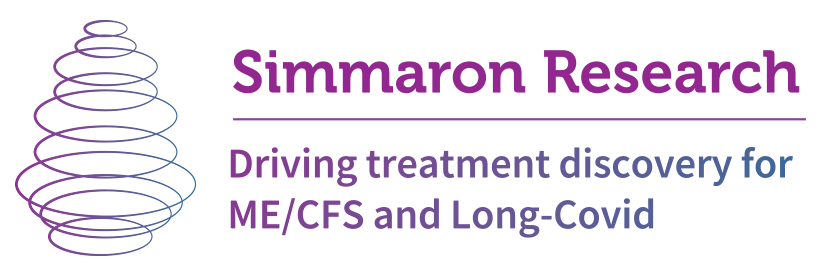Our science of subsets: diagnostics and treatments for ME/CFS have been stilted by a heterogeneous patient population.
Believing that each patient needs a treatment, Simmaron leads pilot studies to define subsets and explore treatments in patient cohorts with similar characteristics. We are undertaking a breakthrough analysis of responders to IV treatments in an ME/CFS clinic. We are now investigating molecular pathways that are disrupted in ME, long-COVID, and POTS, and working to develop mouse models for core disease attributes.
Project:
Mouse models and molecular studies to test pathway dysfunction and treatment possibilities.
Collaboration: Coppe Laboratories, University of Wisconsin
This group of projects will utilize Simmaron’s new Research and Development Laboratory in collaboration with Coppe Lab and University of Wisconsin’s animal research facility. These studies aim to identify broken pathways in energy production in ME/CFS, long-COVID and POTS, test interventions at a molecular level, and explore mouse models critical to drug discovery and treatments.
Funding goal: $300,000
Project:
Seahorse I
Collaboration: Cornell University
This project aims to take a multi-omics approach to understand differences in isolated immune cells collected from ME/CFS patients and healthy controls. The aim of this project is to help researchers in the field better understand phenotyping different subsets of ME/CFS patients.
Funding goal: $75,000
Project: The Development of Patient Derived Induced Pluripotent Stem Cells (IPSCs) from Skin Fibroblasts and Peripheral Blood Mononuclear Cells—Modeling Drug Response*
Collaboration: Avik Roy Ph.D., C. Gunnar Gottschalk Ph.D.
Induced pluripotent stem cells (IPSCs) are cells that have been genetically reprogrammed to an embryonic stem cell–like state by being forced to express genes and factors important for maintaining the defining properties of embryonic stem cells. IPSCs can be further cultured to express the phenotype of any cell residing in either the periphery or central nervous system. Recently, we have developed a protocol to isolate IPSCs from easily accessible whole blood and skin fibroblasts samples taken in the clinic. Following isolation, IPSCs can be immortalized prior to further differentiation. The downstream differentiation of IPSCs into the cells relevant to a disease phenotype provides a non-invasive mechanism for personalized drug screening investigations, and complimentary studies aimed to understand the role of functional genomics, proteomics and metabolomics within that individual. Using this tool, we recently described for the first time the functional role of a homozygous BPOZ-2-point mutation as it relates to the development of Parkinson’s Disease in a severely affected pediatric patient. IPSC technology is slated to be the future of personalized medicine, and its implementation in the field of ME/CFS is both novel and critical.
Funding goal: $100,000
*Asterisks denote a treatment-focused study
Project: AMP-Nano*
Collaboration: Cornell University
In this prospective, longitudinal study we aim to identify why some ME/CFS patients respond to specific intravenous therapies provided by our clinical partner. Our primary goal is to identify phenotypic responders to therapies and develop a treatment algorithm that can be shared with other clinicians in the field of ME/CFS patient care.
Funding goal: $150,000
Project: Red AMP*
Collaboration: Centers for Disease Control
In this retrospective, longitudinal study we are analyzing both unstructured patient medical records from our clinical partner and structured case report folders derived from the Ampligen® 511 Phase III clinical trial. With the help of partners at CDC, we aim to 1) validate our responder cohort and 2) to identify surrogate clinical makers of response to Ampligen® therapy.
Funding goal: $100,000
Project: Whole exome sequencing of families suffering from ME/CFS
Collaboration: Open Medicine Foundation, Stanford University
This project involves collecting DNA samples from families that have multiple lineages of ME/CFS. We aim to compare individuals within families that are both affected and non-affected, potentially enabling identification of novel genetic aberrations.
Funding goal: $75,000
Project: Assessment of 25 bone marrow biopsies from ME/CFS patients and healthy controls harboring B-cell clonal rearrangements
Collaboration: Stanford University
Over the past 3 years our team has collected bone marrow samples from ME/CFS patients and others with b-cell clonal rearrangement. B-cell clonal rearrangements account for a significant number of lymphomas diagnosed in ME/CFS patients in Dr. Peterson’s clinic. We aim to analyze marrow tissue at the molecular level to identify the driving force behind this extremely dangerous immune perturbation.
Funding goal: $150,000
Project: HLA typing in ME/CFS
families
Collaboration: University of Montreal
Human Leukocyte Antigen (HLA) typing allows categorization of the protein receptors on immune cells. Multiple studies have reported that ME/CFS patients’ HLA types cluster into groups that are different than unaffected individuals. Using HLA technology, we aim to better understand the potential genetic predisposition for the immune dysfunction observed in ME/CFS patients.








